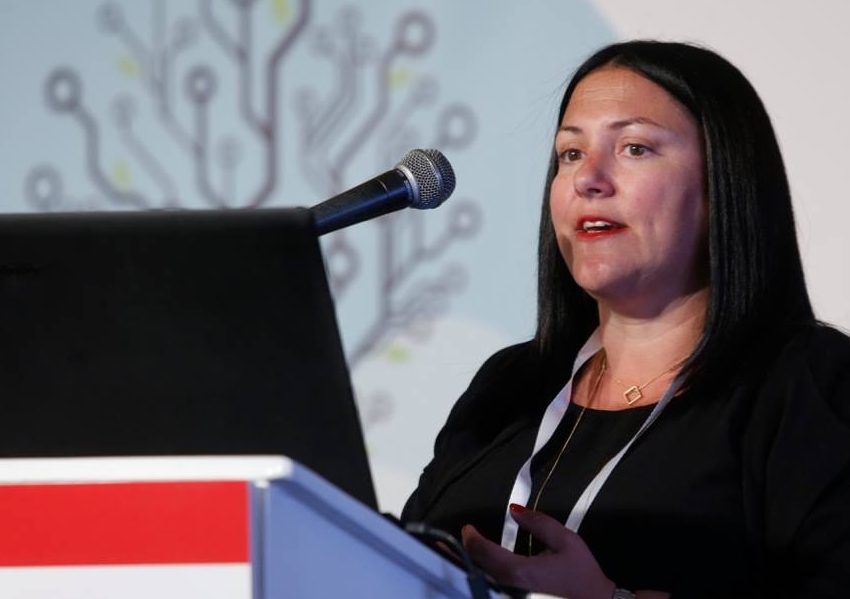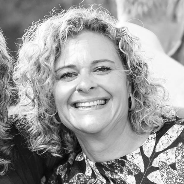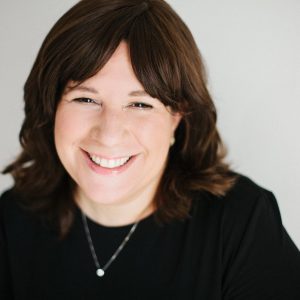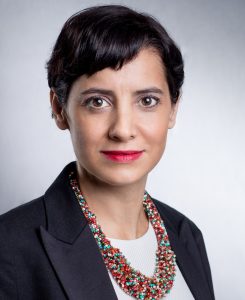Looking around recently at a group of some 200 people – only two of which were women – attending a conference hosted by a large Israeli venture capital firm, Boaz Katz said something clicked. The co-founder of the Israeli event tech company Bizzabo decided to take to Facebook to voice his outrage, and before he knew it, the post had quickly spread.
“We need to be ashamed of ourselves that this is the situation in our industry,” he wrote. He promised that he would set aside an hour a week for a woman entrepreneur or would-be entrepreneur to come in for a discussion where they could ask for his advice and guidance on anything related to setting up a startup so that “the next conference would be made up of 51 percent of you,” a reference to the fact that women make up almost 51 percent of the world population, despite their far smaller representation among investors and executives in the high-tech world.
The post, Katz tells NoCamels, spread like wildfire in the Israeli high-tech industry, and he started receiving dozens of messages from figures in other companies who wanted to join the initiative. Together with his friend Yonatan Zur, CEO and co-founder of Regulus Cyber, the two set up a webpage called “Let’s get to 51” where leading Israeli figures in the field – male and female CEOs, venture capitalists, co-founders, heads of departments, VPs and so on – open their calendars to women in the midst of setting up a startup, or dreaming of launching one.
Over 80 mentors – or “helpers” as Katz and Zur call them – have signed up. Some head up large operations such as Intel Capital Israel, Microsoft for Startups, Check Point, Deloitte and Ernst & Young, and, Like Katz, have allocated an hour a week for the initiative, while others are available during weekday afternoons and even weekends. Some have even set aside slots that slide into the late hours, like 23:45 pm. A majority are booked up for months as hundreds of women entrepreneurs have grabbed at the opportunity.
The guidelines, or “the code,” for the initiative are clear. Those requesting meetings must be entrepreneurs or aspiring entrepreneurs, they must be on time and are banned from using the meeting to pitch ideas or raise funds. “There are other channels for that,” the site instructs. Mentors also vet the applicants to some degree. Some allow the entrepreneurs to set up a meeting but ask for an e-mail detailing topics for discussion; others ask for an introductory e-mail before approving a meeting.
Katz said he alone has 40 meetings set up and already hosted three such sit-downs. “There are so many great ideas out there, and the women come so prepared, they really do their homework,” he tells NoCamels.
As a father of two daughters and a son, Katz said it’s important to empower women and foster an environment that leads to growth and equality. “I have a mantra with my daughters, I tell them that they can do anything they want to,” he says, adding that Israel has quite a ways to go in terms of teaching young girls this message, let alone in achieving true equality in the workplace.
Katz says he’s really pleased with the response to the initiative and that it was important for him to try to make a difference beyond publishing an angry Facebook post. “I’m doing less sleeping but it’s all very exciting,” he says.
Now, “Let’s get to 51” is expanding to other countries, Katz says, with the initiative soon launching in Sweden and Norway while talks with UK counterparts are ongoing.
“We are trying to build it globally,” he tells NoCamels, which is one of the reasons the initiative launched in English and not in Hebrew.
In The Age Of #MeToo And Increased Awareness
The “Let’s get to 51 percent” initiative comes at the same time that the #metoo movement has seized international public attention. Launched in the wake of the sexual assault allegations surrounding Hollywood heavyweight Harvey Weinstein – the movement has spread to politics, journalism, and beyond, with women across various industries feeling empowered to finally come forward about the abuse, mistreatment, and dismissal they suffer in the professional world.
The movement hit Israel too, with prominent female journalists such as Dana Weiss and Hadas Shteif coming forth with sexual misconduct and abuse of power accusations against superiors and peers. In the high-tech industry, allegations of harassment and coercion also abound. The field is dominated by men, especially in the venture capital world, with just 35 percent of the Israeli high-tech workforce made up of women and with less than 25 percent in key technology positions.
Earlier this year, the Israeli business daily TheMarker released a powerful video (in Hebrew) of leading men in the Israeli high-tech sector reading testimonies of women’s experiences with sexual misconduct in the field.
“When I managed to close deals, they told me that I succeeded because I was a woman with tits, and they love girls like me. If I failed to close deals, they told me it was because I was a woman and didn’t understand business. They belittled me. I felt that it didn’t matter if I did things well or poorly. Everything came back to me being a woman,” said one of the women, as read by a manager of a VC fund, who paused between sentences. Some of the other men reading the testimonies appeared visibly shaken.
But sexual harassment and misconduct are not the only obstacles women face. There is a fair share of sexism and ageism too, not to mention wage inequality, which is among the widest in the developed world.
Less than three percent of Israeli entrepreneurs are women and, out of every 10 entrepreneurs able to raise venture capital funds for their initiatives, one is a woman. This is according to Hilla Ovil Brenner, a high-tech entrepreneur and the founder of the organization Yazamiyot (female entrepreneurs in Hebrew), which currently has over 3,000 members.
“It’s hard for women to raise money; most VCs are men and they invest in people who are similar to them,” Brenner tells NoCamels.
Many investors, she says, can also be too preoccupied with a woman entrepreneur’s reproductive plans, trying to determine whether she’ll “wants more kids or how she’ll to manage a career and children.” Women who want children have to take themselves out of the game for a time and they feel at a disadvantage when they come back, she explains.
The high-tech sector in general creates work environments that can be difficult for parents; the late hours and the afternoon meetings can be a challenge for moms, she says.
Her flagship project, “Google Campus for moms” aims to fight these obstacles with workshops aimed at women juggling businesses and children.
Brenner says that while the “Let’s get to 51 percent” initiative is “a welcome project that goes hand-in-hand with our vision [at Yazamiyot]” to raise awareness about the obstacles women face in the high-tech sector in Israel, “it’s not enough.”
Women entrepreneurs and aspiring entrepreneurs “need the tools, they need the investment,” Brenner says.
“With less than five percent of companies led by women getting funding, we need more women CEOs and managers and investors and members of advisory boards,” to really change the system, Brenner tells NoCamels.
That sentiment is echoed by Dr. Galit Desheh, the director of Power in Diversity, an initiative launched by the Herzliya-based venture capital firm Vintage Investment Partners, which promotes a diversified high-tech workforce.
Not only should more women be in business leadership postions, Desheh tells NoCamels, “we need more investors who look specifically for women-led companies [to invest in].”
“Men give money to men, to people who are like them, and in Israel that usually means white, Ashkenazi, with a background in [the elite IDF intelligence unit] 8200 and similar education paths,” she says, which makes it exceptionally difficult for women (even as many do serve in this particular military unit).
So while “Let’s get to 51 percent” and other initiatives – such as WeAct, led by Darya Shaked – that promote women entrepreneurs is wonderful, Desheh says she doesn’t quite understand why a ban on pitching and raising capital is being enforced.
Sign up for our free weekly newsletter
Subscribe“Those things are exactly what women need. Giving advice is great but we need more than advice. We need access to money,” she says.
SEE ALSO: These Five Female Tech Leaders Inspire Innovation In Israel – And Beyond
Miriam Lottner, the co-founder of the Israeli Women’s Entrepreneurs Network (IWEN) group on Facebook, and an entrepreneur herself with background in high-tech, says the initiative is a “brilliant media strategy” that completely misses the mark.
“It’s not that we can’t get the meetings, that’s not the issue, it’s that we don’t get the funding,” says Lottner, who is also one of the original members of the ImaKadima: Working & Career-minded Moms in Israel group on Facebook which now has over 9,000 members.
“If they really wanted to make a difference, if they wanted to change the numbers and actually get to 51 percent, they would put a million dollars in a fund and allocate it to women-led startups,” she tells NoCamels.
Lottner, the CEO and founder of Reveal Israel and an LA native who immigrated in 1994, says “there’s a reason we can’t get the funding and it’s not because we are not intelligent or not capable, it’s because of bias and prejudice.”
She says women entrepreneurs are asked inappropriate questions about children or marital status by investors and often “lose” to the men pitching alongside them.
“Every single member of IWEN is looking for funding, and they deal with rejection, and sexism, and struggle so much,” says Lottner of the women in the group which currently has over 1,000 members, most of them originally from other countries.
“We have a few women [in the group] who have raised some money but it’s not the kind of money that their male peers get,” she explains.
A step in the right direction?
But others still see “Let’s get to 51 percent” as the right kind of initiative.
Inbal Arieli, a female mentor with the initiative and co-CEO of Agile Synthesis, a business consulting company, acknowledges that women face more obstacles and are more reluctant to approach people, but believes “Let’s get to 51” will “help women entrepreneurs be more proactive.”
Arieli tells NoCamels that while the disproportionate number of men in high-tech compared to women is widely known, the situation is slowly changing and initiatives like these contribute positively to the issue.
“This is about providing access and helping more women entrepreneurs, not just with guidance but also teaching them what resources they have, talking to them about where to go [to further their goals],” explains Arieli, who says she regularly mentors men and women through various other programs.
She says the campaign targeting women entrepreneurs “makes total sense” and has opened a weekly spot for the meetings, with her next six weeks fully booked.
Arieli, a former lieutenant in the 8200 unit and a leading female figure in the Israeli tech scene, says her general experience in the industry has been “very pleasant and inviting” and she has never felt at a disadvantage compared to her male peers.
“I have never sensed that being a female entrepreneur has held me back,” she tells NoCamels. “We are all equal.”
A mom of three, Arieli says that women need to “compete in the real world,” and that women she has seen succeed have all been “self-confident and persistent with very good inter-personal skills and are not intimidated by ‘business talk.'”
This approach reinforces a sense by Desheh, of the Power in Diversity initiative, that the future is bright for the new generation of women currently in or entering the high-tech sector.
“I see amazing progress when I talk to young women. They are stronger, they are confident, they don’t take any bullshit, so it makes me optimistic,” Desheh tells NoCamels.
She feels that the increased awareness about the issues women face and especially the #MeToo movement have introduced another level of discussion and have brought in great people with noble causes, like Boaz Katz.
Sivan Felder, a director and screenwriter for a production company in Israel who has a startup idea and has booked a meeting with a female mentor for next month, says Katz’s initiative is a “great idea” that would allow her and others to tap into a “wealth of knowledge.” It also may help give women a sense of empowerment, she indicates.
Felder, 27, a mom of two living in the West Bank settlement of Alon Shvut, tells NoCamels that #metoo and other movements like it have an underlying theme that women are afraid and while the awareness is a positive aspect, “we need to do the work internally, because until we’re not afraid anymore, until we are confident in ourselves and our capabilities, all the offers [for meetings] in the world won’t make a difference.”
“The work has to be on both sides,” she tells NoCamels. “There should be more opportunities for women but we also have to work on the fear.”
As for Katz, he says that he anticipated some of the criticism after speaking to a female friend who advised him “not to get into it,” right before he launched the initiative.
“She was concerned about the results, despite the good intentions,” he tells NoCamels, “but I didn’t want to just put up a Facebook post and gripe about how awful the situation is.”
Katz says the meetings are geared toward getting expert advice for example on “presentations, which slides are not clear, which VCs should be approached, valuations and more, and he does understand some of the misgivings women have about the initiative and the perception that it may be insufficient.
But “sometimes you need to go through the closed doors and even through walls – it’s part of the skills you need when you’re building a business,” and “raising funds is hard for both women and men entrepreneurs,” he says.
Related posts

Editors’ & Readers’ Choice: 10 Favorite NoCamels Articles

Forward Facing: What Does The Future Hold For Israeli High-Tech?

Impact Innovation: Israeli Startups That Could Shape Our Future











Facebook comments